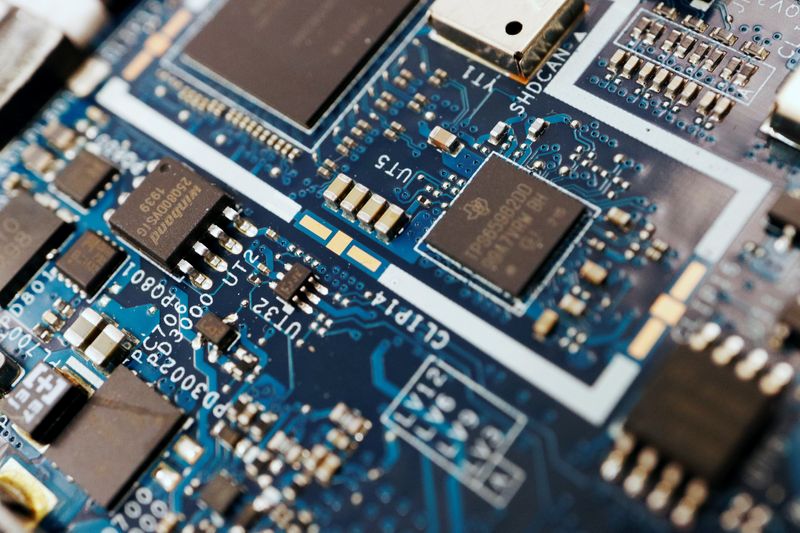By Patricia Zengerle and David Shepardson
WASHINGTON (Reuters) -Voting in the Senate on a bill to boost the U.S. semiconductor industry and improve competitiveness with China could begin as early as Tuesday, Senate Majority Leader Chuck Schumer has been telling lawmakers, a source familiar with the issue said on Thursday.
The source said the bill would include, at a minimum, billions of dollars in subsidies for the semiconductor industry and an investment tax credit to boost U.S. manufacturing.
Lawmakers hope to pass the legislation and send it to the White House for President Joe Biden to sign into law before they leave Washington for their annual August recess.
"We want as robust of a bill as possible," U.S. Commerce Secretary Gina Raimondo told reporters following a closed briefing with some members of the House of Representatives. But when asked if a scaled-back measure would be acceptable, Raimondo replied: "If that's what the members of both the House and the Senate feel is possible, then let's get it done."
Citing national security concerns if legislation were to continue to languish, Raimondo said, "We are out of time."
The planned legislation would be a condensed version of a bill the Senate passed in June 2021 that included $52 billion for chip subsidies and authorized another $200 billion to boost U.S. scientific and technological innovation to compete with China.
But that bill never became law. The House of Representatives never took it up, instead passing its own version in February similar to the Senate's measure but also included a number of trade proposals.
The overall plan - a priority for the Biden administration - more recently faced a new hurdle in the Senate, where it will need Republican support to move ahead.
Senate Republican Leader Mitch McConnell said on Monday that if Democrats pursue a separate partisan social spending, tax and climate bill, it "will certainly crowd out our ability" to move ahead the bipartisan chips and China competition measure.
Secretary of Defense Lloyd Austin issued a statement urging Congress to act. "Weapon systems employed on the battlefields of today and emerging technologies of tomorrow depend on our access to a steady, secure supply of microelectronics," he said.

The comments about Schumer's plans were consistent with what Raimondo told Reuters on Wednesday. She said lawmakers appeared to be moving to carve off the $52 billion in semiconductor chips manufacturing subsidies from the larger bill.
A shortage of chips has disrupted the automotive and electronics industries, forcing some companies to scale back production. Many companies think the shortage will last at least until late 2023.